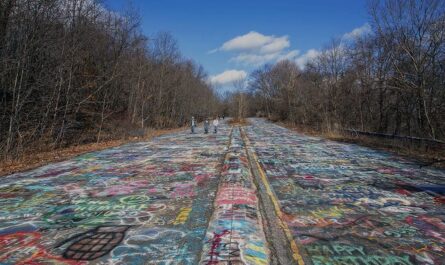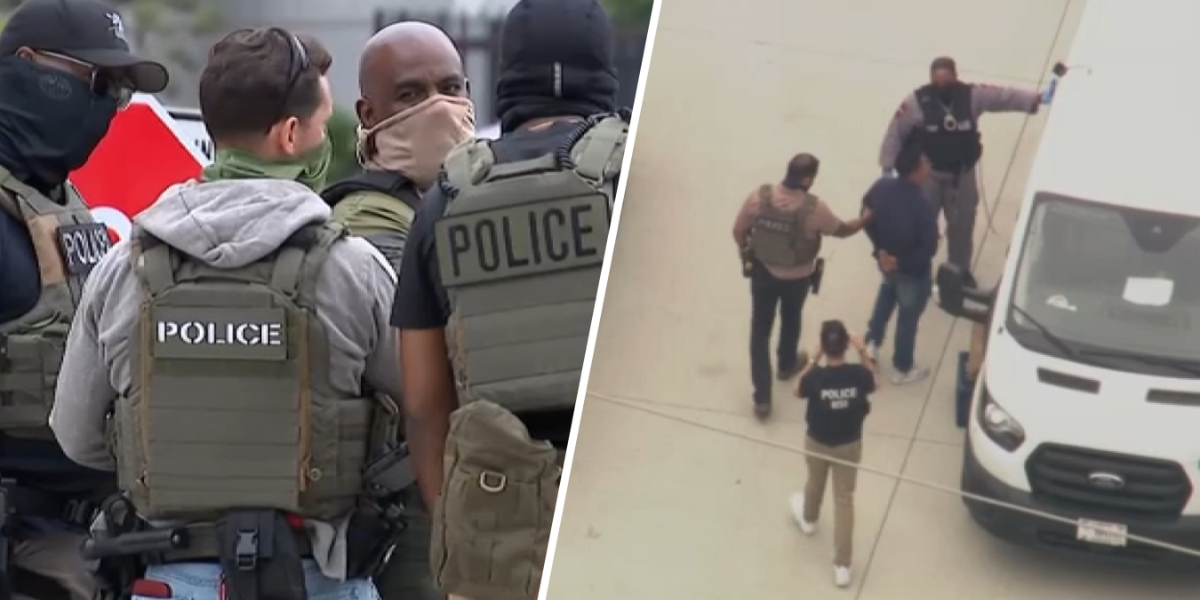Nelson is studying for the bar test and making plans for their future over the summer with his partner. They are making big and small plans that seemed impossible at first.
“I never had the choice to be myself in my country,” he said.
He said that he was treated differently as a child and as an adult in Venezuela. This became even more dangerous for him when he came out as gay during a time of great political unrest in the country. Nelson said that he ran away to better ground after a violent encounter with police. So he could get to the United States, he used a tourist ticket to fly there and then asked for asylum.
He explained, “I felt like I was leaving so much behind, including people I loved, but at the same time, I knew that was the only way for me to keep living.”
The U.S. doesn’t keep official records on how many asylum seekers are LGBTQ, but The Williams Institute, a study group, says that between 2012 and 2017, at least 11,400 asylum applications were made by LGBTQ people. “98% of those claims based on LGBT status were determined to have credible or reasonable fear of persecution or torture” in the applicant’s home country, according to the institute.
The United States has known for decades that the fear of harm to LGBTQ people around the world is a reason to give asylum.
“Asylum is a safety net that queer people must have,” said Aaron Morris of the legal services company Immigration Equality. “Somewhere in the world, people are after us, breaking the law, and putting us to death just for being who we are.”
He is one of the people who are now waiting to see if that position changes as President Trump’s government cracks down on immigration in a way that has never been seen before.
For example, Morris said he worries that LGBTQ+ migrants who come to the border might not be allowed to enter, which would stop them from asking for protection in the U.S.
Morris said he’s worried that his clients could be sent back to their home country while they wait for their asylum case to be decided, which can take years. His group hasn’t seen a change in how often their lawyers win queer asylum cases for people who are already in the country.
When the federal government was different, they would let you stay in the US until your case was over. He said, “With the Trump administration, there’s no guarantee that will end.”
The number of times D.C. immigration lawyer Sarah Pitney wins queer asylum cases hasn’t changed, but the number of times their clients feel safe while seeking shelter has. Pitney said that having ICE officers at immigration meetings has made people feel scared, which is especially hard for queer people because they are more likely to be abused while they are in jail, according to experts.
Pitney said, “It makes my queer clients even less likely to show up to their hearings, so I have to spend a lot of time convincing people to fight their cases.”
Naomi Rennard, whose group AsylumWorks helps arrivals get used to life in the U.S., said that fear has also made it harder for LGBTQ+ immigrants to get the social services they need.
“We had one gay client who said he felt the same kind of anxiety he did when he came out in his village….because of the rhetoric and rumors that are going around in the D.C. area right now about targeting newcomers and targeting queer people,” Rennard said. “I think this is a real fear that we didn’t used to see.”
Pitney said that the president’s order on gender markers has also made things harder for trans clients who may have won their refugee cases before but may now be given green cards even though they were born with a different gender.
“One of my clients has a full beard and doesn’t look at all like a woman.” “I’m scared to death that his next refugee travel document will say female on it,” Pitney said. “What if they accuse him of document fraud when he comes back from traveling abroad?”
They didn’t say anything when asked what they would say if a client asked if they were still welcome in the U.S.
“It’s hard for me to answer this question because I don’t think queer people were ever welcome here.” I believe that gay people have made a place for themselves as a group. We fought for that room. “We were never given the chance to do it,” Pitney said.
Still, Pitney said they still think that LGBTQ people coming to the U.S. to escape violence will have a better chance at being free.
It’s still dangerous to be gay in the US, but there are places where gay people look out for each other. “That’s what we’ll always do,” they said.
Nelson said that making friends was what kept him going during the seven years he had to wait for refuge. He went to law school in the U.S. and now works for an immigration company to help people like him.
“It makes me feel great to help people who were in the same situation as me,” he said. “What I got, I’m actually giving back.”


 by
by 

